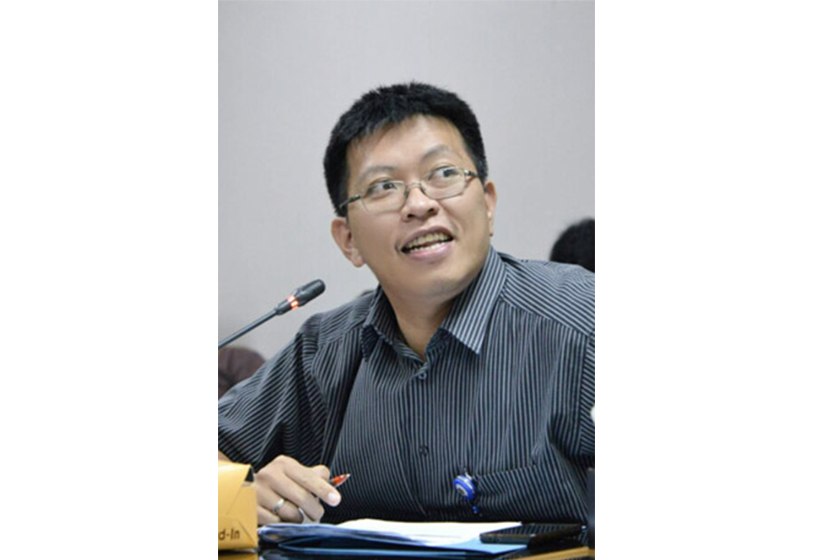With the Indonesian economy slowing down and experiencing its lowest level of growth since 2009, fiscal policy is crucial in boosting confidence and reviving the economy. Australia Awards alumnus, Yuventus Effendi, a dedicated researcher at Indonesia’s Fiscal Policy Agency, is now playing an even more influential role in contributing his analysis to the decision makers.
Yuventus, 35, graduated from the Australian National University (ANU), earning his Master’s degree in International and Development Economics in 2013. He was part of the newly-launched Australia Awards Split-site Master’s Program, in which a potential scholar completes two linked Master-degree programs in different locations.
Studies commence at an Indonesian university for one year, and are followed by studies in an Australian university for a second year. The degree is awarded by the Australian university. According to Yuventus, one of the advantages of the Split-site Master’s program was going to Australia in a group. Ten Indonesians studied for the same degree at ANU.
“As a group, we tended to have discussions together. We shared our understanding of the material as well as the challenges. It felt good to have a similar experience,” he said.
The difference between the approaches of the two universities was apparent from the outset. “When I was studying in Australia, I got to apply theory to real work. I was able to translate theoretical material to journals,” said Yuventus.
In the Indonesian university, he was “burdened and overwhelmed” by too many subjects. In Indonesia, he studied 13 subjects, but in Australia he only studied six subjects. “The fact that they taught fewer subjects in Australia gave me a chance to learn more comprehensively and thoroughly. I wish I could’ve spent the whole time in Australia. I felt that I could’ve gained more.”
He felt that other scholars who spent the whole time in Australia had “mastered the skills.”
Yuventus is an avid learner. Prior to his studies, he had earned a diploma in Accounting, He was already working at a district tax office, but he wanted to finish his undergraduate degree. He took night classes for two years at the Perbanas School of Economics in Jakarta, majoring in Accounting. With a degree to his name, he got promoted to the Directorate General of Tax in 2010, before he moved a year later to the Fiscal Policy Office as a researcher in macro and micro-economic policy. From there he applied for a scholarship and a place at ANU.
“I’m still young and I want to seize every learning opportunity I encounter for my own personal gain,” he said.
Recently, Yuventus used a methodology he learned in Australia in his analysis of the impact of the ASEAN Free Trade Agreement on Indonesian exports. His next research is finding ways for the Indonesian government to make tourism a more efficient industry that can contribute more to the Indonesian economy.
Yuventus has remained in touch with people at the ANU under the Indonesia Project, which is a consortium that holds research-based policy forums to discuss topical policy issues in Indonesia.


 Policy Researcher Gains Expertise through the Split-Site Master’s Program
Policy Researcher Gains Expertise through the Split-Site Master’s Program
